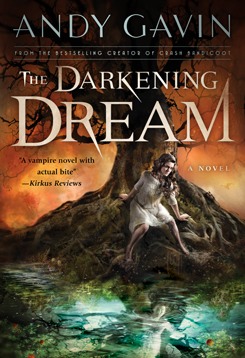 Title: The Windup Girl
Title: The Windup Girl
Author: Paolo Baciqalupi
Genre: Sci-Fi
Read: Jan 5-9, 2011
Summary: Interesting Science, mediocre Fiction.
This novel won the 2009 Nebula and tied for the 2010 Hugo. It’s set in an approximately 100-200 years-from-now dystopian future Bangkok ravaged by gene engineered diseases. Fossil fuels are nearly exhausted and society eeks by on “megadont” (gene hacked elephant) and human power.
At first I found this intensely gripping, as the depiction of the future world is crystal bright and highly novel. The prose is fantastic, bordering on slightly literary. The problem is that the story has a lot of characters, five or six main points of view, and I found it very hard to care about most of them. I only really liked Emiko, the gene hacked whore/slave looking for a better life. The American gene thief was okay too. The rest of them I could hardly focus on enough to follow their rambling monologues. Once the relative novelty of the world ground down a bit, I just couldn’t keep myself interested in what was happening. There’s plenty of plot, but it’s moderately byzantine, and I just didn’t care.
Because books are all about the characters. Contrast The Windup Girl with something like Song of Ice and Fire (which I need to write up, but is being adapted into an HBO series). The plot and world in that book are intense, but Martin makes you care for all (well most) of the characters. The Windup Girl has a lot of repetitive rantings. The elderly Chinese guy for example goes on for about two pages in his second chapter about his distrust of banks. Sure this was supposed to instill the sense that he no longer trusts any institution (for good reason), but it just felt self indulgent. The seedy scenes with the titular character in sort of future Patpong where cool though, albiet disturbing.
Let me get back to the world, as this is the biggest strength of this book. The author clearly spent some serious time in Bangkok, and the foreign, yet vaguely possible future was pretty damn good. I don’t really buy the relying on springs for power, and there’s very little impact here of either nanotech or computers, both of which I think will dominate the 21st century. Still, it was pretty cool. There’s a serious element of “environmental preachy” between the lines, which I suspect is a factor in it’s award winning status. Award gives love a leftist cause. Not that I’m not pro-environment, I’m just not a “causist.” The book reminded me of Neuromancer and Diamond Age in that they described really cool and consistant worlds, but had inadequate character development. Diamond Age in particular is pretty darn boring once you get over the world (which is great). Two many characters, no reason to care about them, opaque and weird motives.
Personally, I think authors should focus tighter on character in these “new world” type books. For example, Consider Phlebas worked for me. People bag on it’s story, but at least it focuses fairly well on a particular guy’s adventure, and the world is amazing. There’s only so much you can do in one book, and a totally new world is a lot. Occasionally someone managed both, like one of my all time favorite novels, Hyperion, but brilliant as that is, even it still suffers from switching the POV so often. But boy does he work some serious pathos into a number of them.



